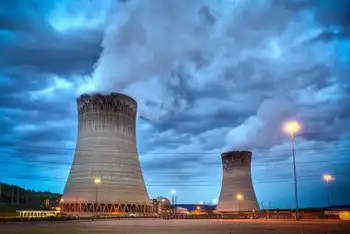China knows climate deals are ruinous
At a July 7 Senate hearing on the effect cap-and-trade would have on global carbon output without cooperation from China and India, EPA Administrator Lisa Jackson declared, "U.S. action alone will not impact world CO2 levels."
On July 9, the Sierra Club issued a statement celebrating that 100 planned American coal power plants have been "defeated or abandoned."
And then, on July 8, Fortune magazine released its annual ranking of the world's 500 largest companies. The number of American companies on that list dropped to its lowest level since Fortune began its review.
The U.S. had 153 companies in 2008, but just 140 this year.
China increased its share of companies from 29 in 2008 to 37 in '09. A Chinese firm even cracked the top 10 for the first time.
Obviously the global warming alarmists are focused on raising the cost of affordable energy for every American family and small businesses.
Administrator Jackson, one of the environmental movement's biggest advocates, admits that India and China's opposition to mandatory emission controls means U.S. action will have no effect on global carbon dioxide levels.
But the environmental special-interest groups continue to push a cap-and-trade scheme. The plan is designed to drive up the cost of coal, oil and natural gas, which account for 85% of the energy that fuels our economy and way of life.
With more Americans out of work than we've seen in decades, and with families losing their homes, is now the time — if ever — to increase energy costs across the board?
The Sierra Club thinks so. Its six-year assault on new, affordable electricity generation has successfully destroyed 100 planned or proposed coal-fired power plants in the U.S. and the thousands of good-paying jobs and billions of dollars worth of economic development they would have created.
In total, the club has stopped 61 gigawatts of new, affordable electric capacity from reaching American consumers. This obstruction persists even as our electricity demand has outstripped our growth in generating capacity by 3-to-1, according to a North American Electricity Reliability Council report from last October.
To keep electricity supply meeting increasing demand and continue to boost its economy and improve the quality of life of its citizens, China has been building coal-fired power plants aggressively. It's completing almost three new plants per month.
By 2020, China will generate roughly the same amount of electricity from coal as the U.S. does from all sources — coal, natural gas, nuclear and hydro. At the same time, according to the International Energy Agency, China has "become the major world market for advanced coal-fired power plants with high-specification emission control systems."
China gets it. The Chinese have signaled their intention to avoid any international agreement on climate change that requires slowing their growth. Reliable supplies of affordable energy enable economic growth and prosperity — a lesson some of our leaders in Congress and at the White House seem to have forgotten.
Our competitors understand that affordable energy is the lifeblood of prosperity. While we turn our backs on our own resources, China is doing the opposite.
While China moves forward, plans from Washington continue to make us less competitive. Rationing our energy through heavy government regulation and attacking our most affordable sources of energy — under the guise of stopping global warming — is unilateral economic disarmament.
Developing countries, like China and India, are too smart to fall prey to such schemes that will lessen one's competitive edge in the global market, force more jobs and investment overseas and worsen economic outlooks.
Look at what is emanating from Washington in the form of the Waxman-Markey cap-and-tax scheme and job-killing EPA regulations. It is not surprising that China's economy is on track to overtake the U.S. by 2035, if not sooner.
Related News

Nuclear plants produce over half of Illinois electricity, almost faced retirement
CHICAGO - Nuclear plants have produced over half of Illinois electricity generation since 2010, but the states two largest plants would have been retired if the state had not created a zero emission credit (ZEC) mechanism to support the facilities.
The two plants, Quad Cities and Clinton, collectively delivered more than 12 percent of the states electricity generation over the past several years. In May 2016, however, Exelon, the owner of the plants, announced that they had together lost over $800 million dollars over the previous six years and revealed plans to retire them in 2017 and 2018.
In December 2016, Illinois passed the Future Energy Jobs Bill, which established a…




